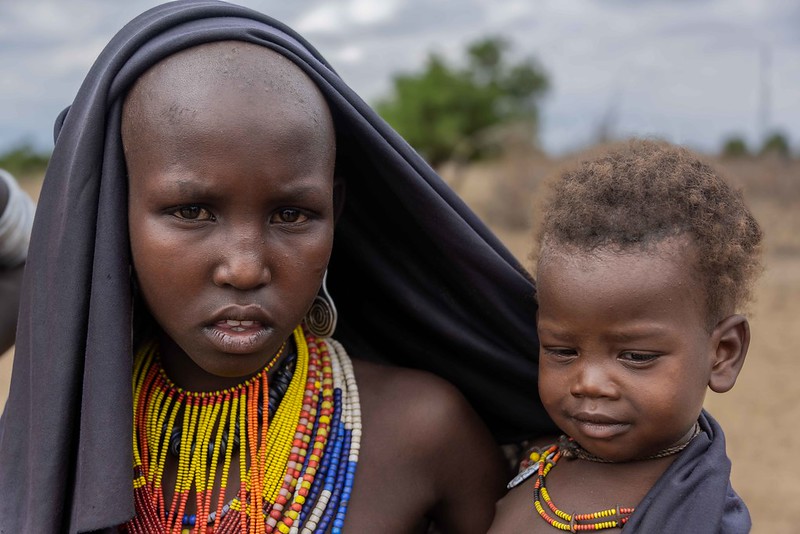Improving Child Mental Health in Ethiopia
 Ethiopia, a landlocked country in East Africa, is the continent’s second-most populous nation with an estimated 129 million people. Despite its large population, poverty is pervasive, with 68.7% of its residents classified as multidimensionally poor, according to the Oxford Poverty and Human Development Initiative. The impact on children is particularly severe, with an estimated 13 million living in poverty and two million in extreme conditions, lacking necessities such as housing, sanitation, clothing, food and education. Additionally, mental health in Ethiopia remains a significant concern, with a noticeable lack of resources and awareness compounding the challenges faced by those living in poverty. The United Nations (U.N.) emphasizes that “…it is most threatening and harmful to children, leaving them unable to enjoy their rights, to reach their full potential and to participate as full members of the society.”
Ethiopia, a landlocked country in East Africa, is the continent’s second-most populous nation with an estimated 129 million people. Despite its large population, poverty is pervasive, with 68.7% of its residents classified as multidimensionally poor, according to the Oxford Poverty and Human Development Initiative. The impact on children is particularly severe, with an estimated 13 million living in poverty and two million in extreme conditions, lacking necessities such as housing, sanitation, clothing, food and education. Additionally, mental health in Ethiopia remains a significant concern, with a noticeable lack of resources and awareness compounding the challenges faced by those living in poverty. The United Nations (U.N.) emphasizes that “…it is most threatening and harmful to children, leaving them unable to enjoy their rights, to reach their full potential and to participate as full members of the society.”
Mental Health in Ethiopia
Childhood and adolescence are crucial phases for physical and mental development and poverty could hinder a child’s ability to focus on studies and connect with peers. In sub-Saharan Africa, the prevalence of depression among 10 to 19-year-olds is about 27%, significantly higher than in Europe and other high-income countries. In 2023, around 24.68% of Ethiopian children experienced mental health issues. The stark disparity in mental health prevalence between regions stems from differences in socioeconomic status, living conditions and public childcare resources. High-income countries, with more advanced childcare systems, provide minimally adequate care for depression to approximately one out of every five individuals, contrasting sharply with one out of 27 in lower-middle-income countries like Ethiopia.
Tackling the Root Source
In Ethiopia, the lack of a defined mental health system for children stems not just from inadequate resources but also from a pervasive lack of awareness. Many Ethiopians hold traditional views on mental disorders, encapsulated in the phrase “Lij Bedilu Yadgal,” which translates to “children will grow by their chance or luck.” This perspective aligns with the belief that mental health issues are spiritual and best treated through cultural or religious practices. Combined with the challenges posed by poverty, this has led to significant gaps in child psychiatric services within the health care system. Addressing these issues requires a focus on community mental health care to enhance awareness, reduce stigma, support recovery and foster social inclusion.
A New Direction
Recently, Ethiopia’s Federal Ministry of Health has initiated new mental health initiatives, including the Enrichment Center Ethiopia’s Support the Care-givers Intervention Program (SCI). This innovative program brings together a team of professionals and volunteers from around the globe to assist infants and children in meeting critical developmental needs. Despite scarce resources, SCI focuses on children aged 0 to 6, aiming to elevate caregiving knowledge by training mothers, social workers, teachers, teaching assistants and childcare staff in orphanages. The training encompasses four weeks of comprehensive sessions in eight different groups, covering essential caregiving skills such as attachment and secure base, insightfulness, reflective functioning and dialogue, emotional regulation and empathy. This approach is designed to enhance the early developmental environment for Ethiopia’s children, particularly in settings where traditional support structures may be lacking.
So far, the Enrichment Center Ethiopia’s training program has educated more than 400 caregivers, with overwhelmingly positive outcomes. Participants report reduced instances of violence, enhanced family dynamics, deeper emotional bonds with children and increased job satisfaction. Leveraging local resources and manpower, ECE’s experience serves as an inspiring model for other communities, demonstrating a cost-effective approach to raising awareness and improving mental health care for young children.
Looking Ahead
Ethiopia’s challenges with widespread poverty and inadequate mental health resources, especially for children, require ongoing attention and intervention. Initiatives by the Federal Ministry of Health and programs like the Enrichment Center Ethiopia’s caregiver training are making strides in addressing these ongoing issues. By focusing on enhancing caregiving practices and providing support, these programs aim to improve the mental health and well-being of Ethiopian children. Continued dedication to these ongoing efforts could be vital in creating a healthier and more resilient future for the country’s youth.
– Kewe Chen
Kewe is based in Memphis, TN, USA and focuses on Good News for The Borgen Project.
Photo: Flickr
